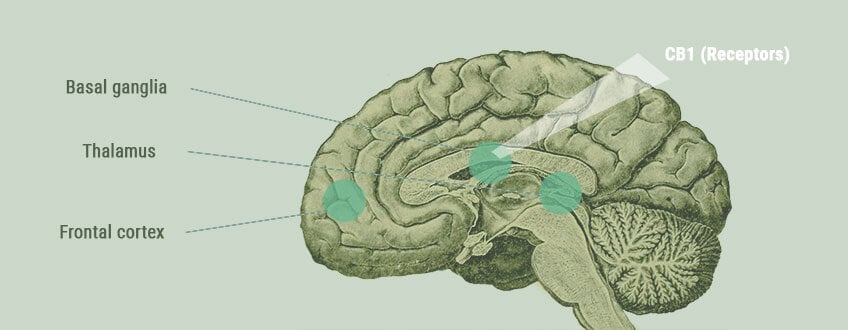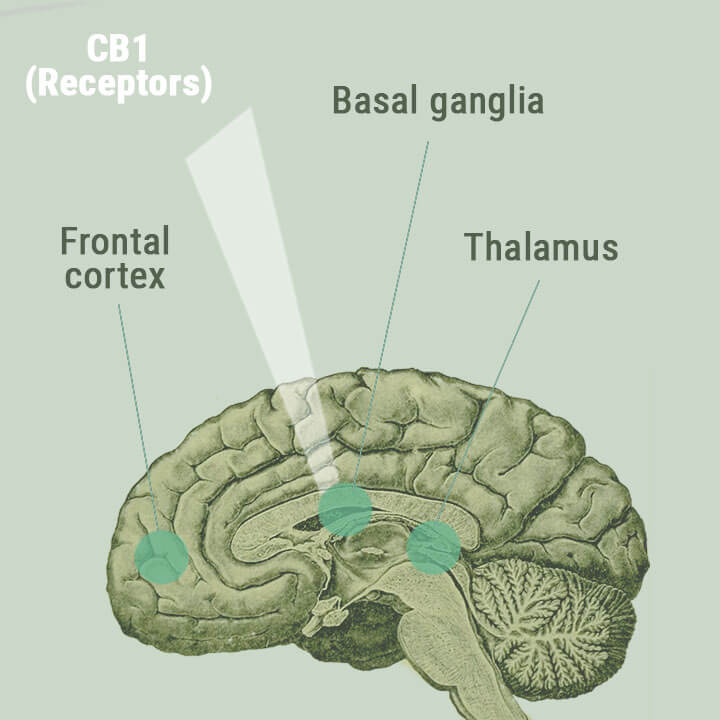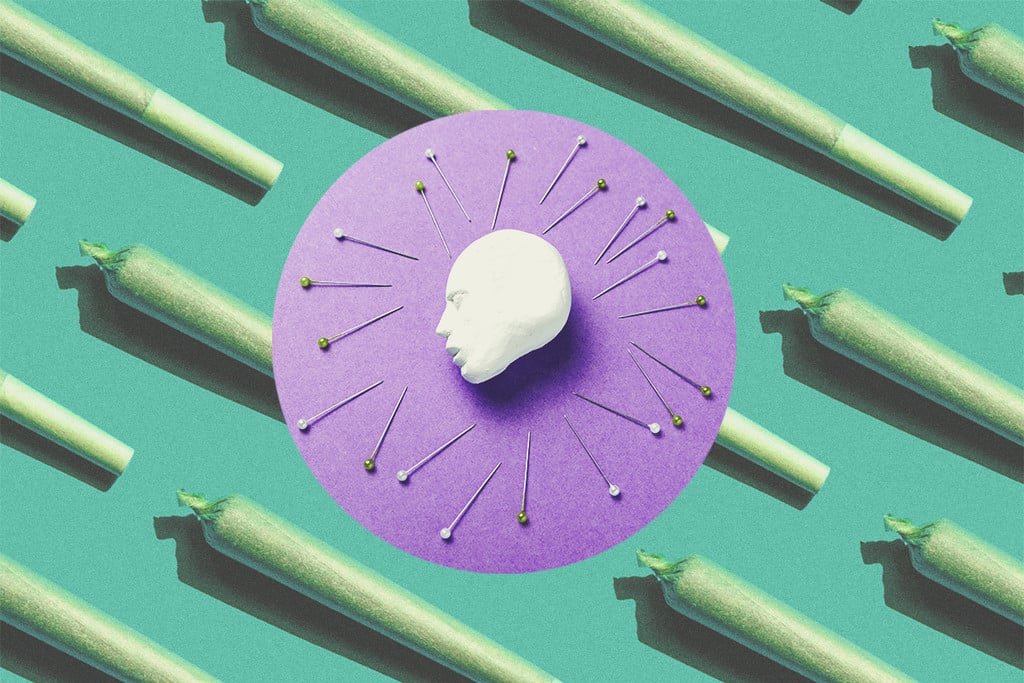.

Could Medical Marijuana Be The Key To Treating Tourette's?
Tourette syndrome affects millions of people around the world, and while there are a few treatment options available, symptom improvement isn't as strong as people would hope. With new research emerging, though, there are many who believe medical cannabis could be the next step in alleviating the symptoms of Tourette's.
Contents:
Over the past decade, many have turned to medical marijuana as a means of treating both their physical and mental ailments. People suffering from chronic pain, inflammation, glaucoma, and even cancer have found relief with the help of cannabis.
The list of maladies it may be able to treat grows longer by the day, and Tourette syndrome might be next on the list. It's still too early to say anything for sure, but things are looking good.
WHAT IS TOURETTE SYNDROME?
While the name is well known, there are some misconceptions around what Tourette syndrome (TS) actually is. Essentially, it's a neurodevelopmental disorder that causes unwanted muscle sensations, leading to motor and vocal tics (we'll explain those later).
Researchers haven't pinned an exact cause, but it's understood that genetic and environmental factors come into play. That being said, it's been shown that a vast majority of cases are inherited. The exact gene that passes this on, though, has yet to be discovered.
WHAT ARE THE SYMPTOMS OF TOURETTE SYNDROME?
Upon mentioning Tourette’s, many of you might picture examples of people on TV having random vocal outbursts. However, while yelling profanities is connected to the condition, the vast majority of people with TS do not exhibit that behaviour.
Rather, the majority of those with TS present a mix of motor and vocal tics[1]. These vary in subtlety, but many can be regularly expressed without anyone noticing. Motor tics like blinking, shoulder-shrugging or eye-rolling, for example, can be passed off as standard behaviour. Even some vocal tics like throat clearing, coughing, and tongue clicking can be done without making anyone nearby too uneasy.
Those who have other tics, though, aren't so fortunate. Some might feel the urge to jump or twirl around, or perhaps jerk their head and limbs. Others might even be driven to touch certain objects or people around them. Certain vocal tics can make things awkward too, especially urges to whistle, repeat phrases, say random phrases, make animal noises, and, of course, swear. The latter, we'll remind you, only affects 1 in 10 TS sufferers, but the others are far more common.
| TOURETTE SYNDRME SYMPTOMS | |||||
|---|---|---|---|---|---|
| Attention deficit | Dysfunction in sensory integration | ||||
| Executive disfunction | Visual perception motor disabilities | ||||
| Learning disabilities | Mood disorders | ||||
| Social skills deficits | Obsessive-compulsive disorder | ||||
| Memory deficits | Panic disorder | ||||
| TOURETTE SYNDRME SYMPTOMS | |||||
|---|---|---|---|---|---|
| Attention deficit | Dysfunction in sensory integration | ||||
| Executive disfunction | Visual perception motor disabilities | ||||
| Learning disabilities | Mood disorders | ||||
| Social skills deficits | Obsessive-compulsive disorder | ||||
| Memory deficits | Panic disorder | ||||
HOW IS TOURETTE'S TREATED?
There are a variety of TS treatments[2] available today, working to varying degrees. The most common treatments, however, are behavioural therapies, and the most researched method is known as habit reversal training (HRT). This method plays off the fact that there's a preceding urge that leads to a tic.
When the person feels this urge, a behavioural therapist trains them to act out a response that silences the tic. This specific strategy is called comprehensive behavioural intervention for tics (CBIT), and it's been shown to be the most effective treatment out there.
This, however, is a first-line therapy, and those dealing with more severe symptoms have other treatments on hand. While there is no medication made specifically for tics, some are prescribed to handle the symptoms.
Antipsychotics like pimozide, for instance, have been FDA-approved to treat the syndrome. It, along with fellow antipsychotic haloperidol, has been proven to be the most effective anti-tic medication. These work by blocking dopamine receptors, though, and the side effects could lead to a whole new slew of issues. Until there's a specific anti-tic medication, though, this is the best medical option.
WHAT ROLE DOES THE ENDOCANNABINOID SYSTEM PLAY IN TOURETTE'S?
You may have guessed that faults in the brain's processing cause TS, but did you know that the endocannabinoid system[3] may be involved too? Allow us to explain. With TS, there are issues with the basal ganglia, along with the thalamus and frontal cortex. Since there's a dense presence of cannabinoid type 1 (CB1) receptors in the basal ganglia, it's understood that the endocannabinoid system (ECS) is heavily involved in its function. Since it modulates this system, along with many others, it's suspected that ECS dysfunction is in part to blame for TS.
CAN MEDICAL MARIJUANA TREAT TOURETTE'S?
Those familiar with the science behind cannabis might realise where we're going with this. Let's break it down; if ECS dysfunction is at fault, could it be possible to treat TS with cannabis?
With greater frequency, science is saying yes—or at least a strong "maybe". Getting right to the point, researchers have suspected that cannabis could help TS patients for decades.
Back in 1998, a team of German researchers found that out of 17 patients who reported smoking marijuana in a 64-person TS study, 14 reported either partial or total relief[4] from their tics. Follow-up studies performed by the same team showed results consistent with this trend.


It doesn't just stop with tics, though. As neurotypical folk might not know, many people with TS also suffer from sleep issues. As many of us do know, though, cannabis can be a wonder at helping people to autumn asleep. While TS causes sleep latency, cannabis cuts it down[5]. While tics get more frequent during REM sleep, cannabis cuts down REM sleep altogether. Then, when sufferers have trouble staying asleep, cannabis keeps them knocked out for the night. It combats OCD symptoms[6] too, which are often comorbid. In turn, it also cuts down the anxiety and aggression[7] that many folks with TS deal with on a daily basis.
TS AND CANNABIS — WHAT DOES THE FUTURE HOLD?
Even with all the research out there already, only the future knows whether cannabis is a true ally for TS patients. Clinical trials are ongoing, with an official one by the US government wrapping up in 2020[8]. We have reason to be optimistic given everything we've discussed here, but let's not get carried away. Researchers will have to make sure THC doesn't cause any side effects in the longer-term and that the tic reduction in other studies wasn't a fluke. At the end of the day, we just hope that those with TS are soon able to access a truly effective treatment.
- Tourette's syndrome - NHS https://www.nhs.uk
- Management of Tourette syndrome https://en.wikipedia.org
- Possible Role of the Endocannabinoid System in Tourette Syndrome https://www.intechopen.com
- Cannabinoids: possible role in patho-physiology and therapy of Gilles de la Tourette syndrome. - PubMed - NCBI https://www.ncbi.nlm.nih.gov
- Decreased sleep quality and increased sleep related movements in patients with Tourette’s syndrome https://www.ncbi.nlm.nih.gov
- Delta 9-tetrahydrocannabinol (THC) is effective in the treatment of tics in Tourette syndrome: a 6-week randomized trial. - PubMed - NCBI https://www.ncbi.nlm.nih.gov
- Psychiatry Online https://neuro.psychiatryonline.org
- Safety and Efficacy of Cannabis in Tourette Syndrome - Full Text View - ClinicalTrials.gov https://clinicaltrials.gov





































